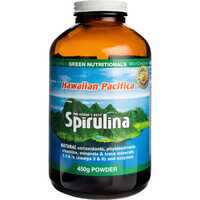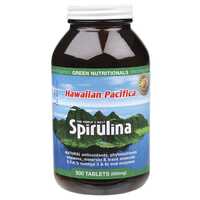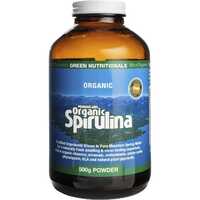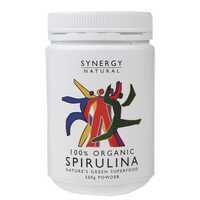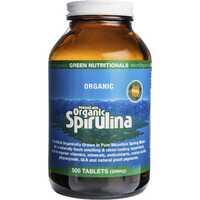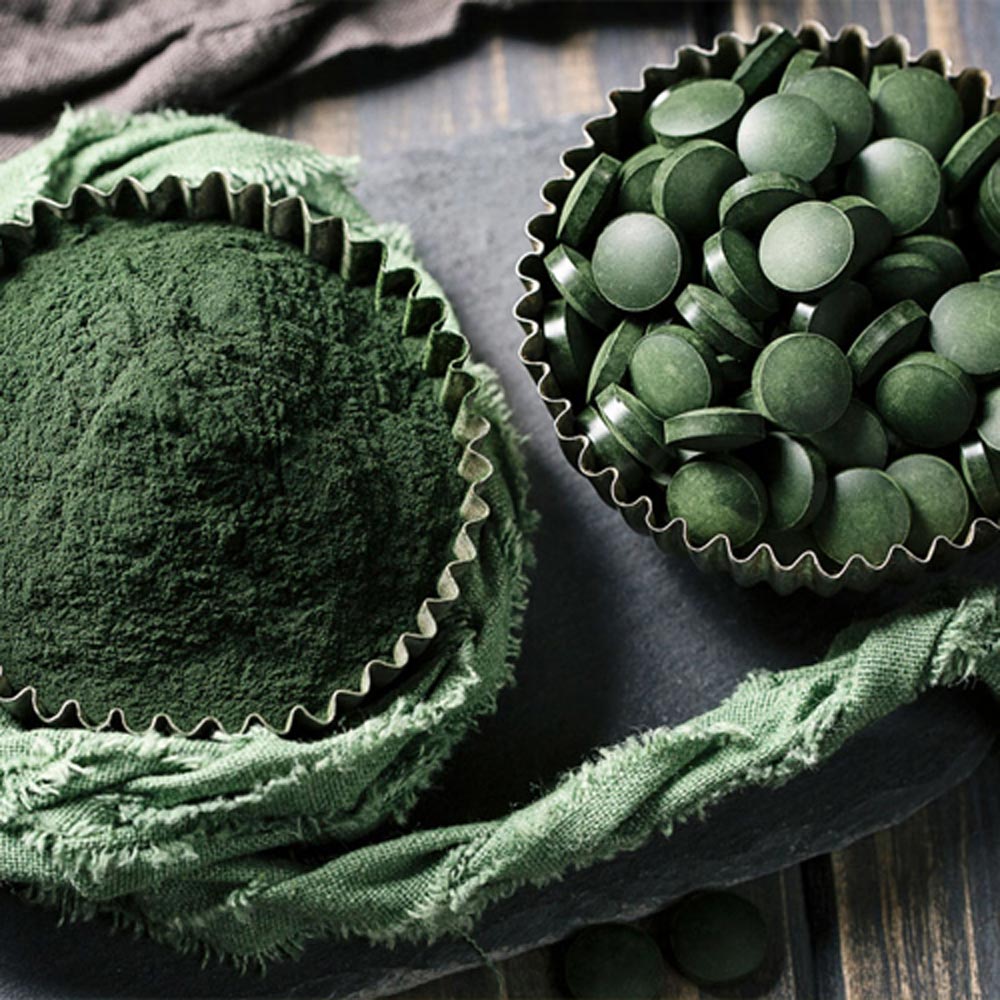Spirulina is a powerful blue-green algae with a rich and balanced nutritional profile. When consumed with a healthy diet, this superfood offers a variety of health benefits. Spirulina is loaded with vitamins and minerals, full of antioxidants, and packed with inflammation-fighting compounds. It has a high concentration of protein and is easy to grow as a pure culture in highly alkaline water. The nutritional profile of this substance has attracted some pretty big fans — even the United Nations has proposed spirulina as a food source for malnourished countries.
Let's look at the history of spirulina, analyse its nutritional makeup, and list 10 health benefits attributed to this popular blue-green algae.
History of Spirulina
As one of the most popular health products in the world, spirulina has impacted all corners of the globe. This rich supplement has ancient origins, having been used as a food and nutritional staple for centuries by the Aztecs. Back then, spirulina was made pretty much the same way it is today — harvested from lakes and dried in the sun. The Valley of Mexico was drained by the Spanish in the 16th century, however, which was when spirulina vanished from historical records.
Sometimes known as blue spirulina, this ancient food also has a long history in Africa. In the nation of Chad, spirulina is called dihé and eaten by the local Kanembu people. They make dried cakes of the substance to eat and sell in the market. Modern-day Chad is still involved in large-scale spirulina production.
Western scientific knowledge of spirulina is much more recent, however, with the first systematic study taking place in the 1970s. As the world discovered more about this wonderful algae, commercial cultivation began on many continents.
From California’s Imperial Valley to Earthrise Farms in Japan, large-scale production of spirulina started to occur in the 1980s. Spirulina was initially farmed as fish food and natural pigment, and it's still used today to colour commercial food products. The nutritional benefits of spirulina soon came to the foreground, however, with the last few decades seeing a huge jump in spirulina sales and consumption. According to Persistence Market Research, the global market for spirulina is estimated to grow from $719 million in 2016 to $1,855.8 million in 2026, which is an annual growth rate of around 10%.
Nutritional Profile of Spirulina
Global interest in spirulina is due to its amazing nutritional profile, which includes many nutrients essential to human survival. This rich blue-green algae consists of 60% protein, 24% carbohydrates, 8% fat, and 5% water. Along with protein, notable nutrients include numerous B vitamins, iron, manganese, and various fatty acids. Spirulina is also relatively easy and ecologically friendly to cultivate, which is a huge advantage for global food security. Helping to fight global malnutrition, and even consumed by astronauts in long-term space flight, spirulina really is a superfood.
Spirulina includes the following vitamins and minerals, based on dried materials and recommended daily value percentages:
- Vitamin B1, thiamine - 207%
- Vitamin B2, riboflavin - 306%
- Vitamin B3, niacin - 85%
- Vitamin B5, pantothenic acid - 70%
- Vitamin B6 - 28%
- Vitamin B9, folate - 24%
- Vitamin A - 4%
- Vitamin C - 12%
- Vitamin E - 33%
- Vitamin K - 24%
- Calcium - 12%
- Iron - 219%
- Magnesium - 55%
- Manganese - 90%
- Phosphorus - 17%
- Potassium - 29%
- Sodium - 70%
- Zinc - 21%
Along with vitamins and minerals, spirulina is also rich in protein, fatty acids, tryptophan, and beneficial bioactive antioxidants. A single tablespoon of spirulina typically contains between 3.8 grams and 5 grams of protein, which is a very high amount. At around 60% protein and often much higher, spirulina offers more protein than chicken at 22%, peanuts at 26%, and dried egg at 47%. For this reason, it is particularly valuable for people on plant-based diets.
Spirulina doesn't have everything the human body needs, however. It has no detectable omega-3 fatty acids and vitamin B12 content. Also, just like other supplements, it's important to watch your levels of consumption. Around 4 grams of spirulina is recommended per day; up to 7 grams per day is found to be safe and more than 15 grams per day is not recommended.
10 Proven Health Benefits of Spirulina
Along with fueling the human body, feeding astronauts, and helping to fight global hunger, spirulina offers a range of specific health advantages. The following 10 spirulina benefits are some of the most important:
Helps to fight inflammation
The powerful antioxidants in spirulina have anti-inflammatory properties, which boost many aspects of human health. Oxidative damage can harm your cells and adversely affect your DNA, with repeated stress contributing to cancer and numerous other diseases. The main antioxidant in spirulina is phycocyanin, which is the same substance that gives this algae its unique blue-green colour.
Assists with gut health
Spirulina is good for gut health. with its rich nutritional profile beneficial for healthy gut microorganisms like Lactobacillus bacteria. Spirulina has also been shown to boost the growth of acidophilus and other probiotics during fermentation, although additional research is needed to check its impact inside the human gut. Additionally, a 2017 study on older mice suggested that spirulina may preserve healthy gut bacteria during the aging process.
Promotes weight loss
The high nutritional value of spirulina has long been associated with weight loss. Beyond the positive or negative characteristics of certain diets, people lose weight when they eat fewer calories than they use. As a high-nutrient, low-calorie food, spirulina packs a lot of punch without much expense. This has been studied — a 2016 research on overweight people, for example, suggests that spirulina may aid with weight management.
Supports diabetes management
Spirulina has shown some promise as a treatment for diabetes, although more research is needed. Spirulina has been found to significantly lower fasting blood glucose levels. High levels are a common problem in people with type 1 and type 2 diabetes. Studies have also taken place with mice, with lower blood sugar and high insulin levels both recorded.
Helps to lower cholesterol
When cholesterol breaks down inside your body due to oxidative damage, it can cause serious heart problems and influence numerous diseases. Spirulina helps to prevent damage to fatty compounds and manage total cholesterol levels. Spirulina consumption can reduce oxidative damage and increase positive antioxidant enzymes. In effect, this helps to lower 'bad' low-density lipoprotein (LDL) cholesterol while elevating 'good' high-density lipoprotein (HDL).
Supports heart health
Along with its specific impact on cholesterol levels, spirulina can help to lower blood pressure and prevent heart disease. According to a 2013 study, this powerful blue-green algae may play a role in preventing cardiovascular disease and non-alcoholic fatty liver disease. With numerous anti-inflammatory, antioxidative, and cholesterol-lowering effects, spirulina supplements are a great way to support a healthy heart.
Boosts metabolism and energy
Your metabolism describes the chemical reactions in your cells that transform food into energy. This process requires specific proteins to control chemical reactions, and spirulina is a rich protein source. When you have a higher metabolic rate, you feel like you have more energy. In a 2014 study, patients with non-alcoholic fatty liver disease who consumed spirulina daily experienced a range of beneficial metabolic effects. They also noted weight loss and better health-related quality of life outcomes.
Reduces allergy symptoms
Spirulina supplements may help to improve the symptoms of allergic rhinitis, which is an allergic condition linked with environmental particles like pollen, dust, and pet hair. This positive anti-allergen effect is connected with spirulina's anti-inflammatory properties. Spirulina has been found to reduce nasal inflammation and histamine in the body, with patients experiencing less congestion, itching, sneezing, and runny nose symptoms.
Supports mental health
Due to its rich nutritional profile and high tryptophan levels, spirulina may help to support positive mental health. Tryptophan is a natural amino acid involved in the synthesis of serotonin. People with depression and anxiety disorders often have low levels of serotonin. Tryptophan-rich supplements help to maintain healthy brain function and support mental well-being.
May protect against some cancers
Spirulina supplements may have some anti-cancer properties. Spirulina’s benefits on oral cancer have been well studied, with consumption found to reduce cancer occurrence and tumour size. Experimental studies in animals have demonstrated an inhibitory effect on oral cancer, and positive results have also been recorded in human studies. In one study from India, 45% of participants saw their lesions disappear after taking just 1 gram of spirulina per day for a year. This was compared to just 7% in the control group. In addition, almost half of the successful group redeveloped lesions when they stopped taking spirulina in the following year.
Along with its amazing health benefits, spirulina is also widely accessible and easy to consume. Dried materials are often sold as raw spirulina powder, which can be added to food or made into a drink. Spirulina is also available as a tablet for easy consumption, and it's increasingly used in beauty products to support healthy skin and hair. If you're ready to boost your health with the world's favourite blue-green superfood, we're sure to have exactly what you need.


 Certified Organic
Certified Organic Vegan Friendly
Vegan Friendly  Vegetarian
Vegetarian Organic Ingredients
Organic Ingredients Dairy Free
Dairy Free Gluten Free
Gluten Free Keto Friendly
Keto Friendly


























